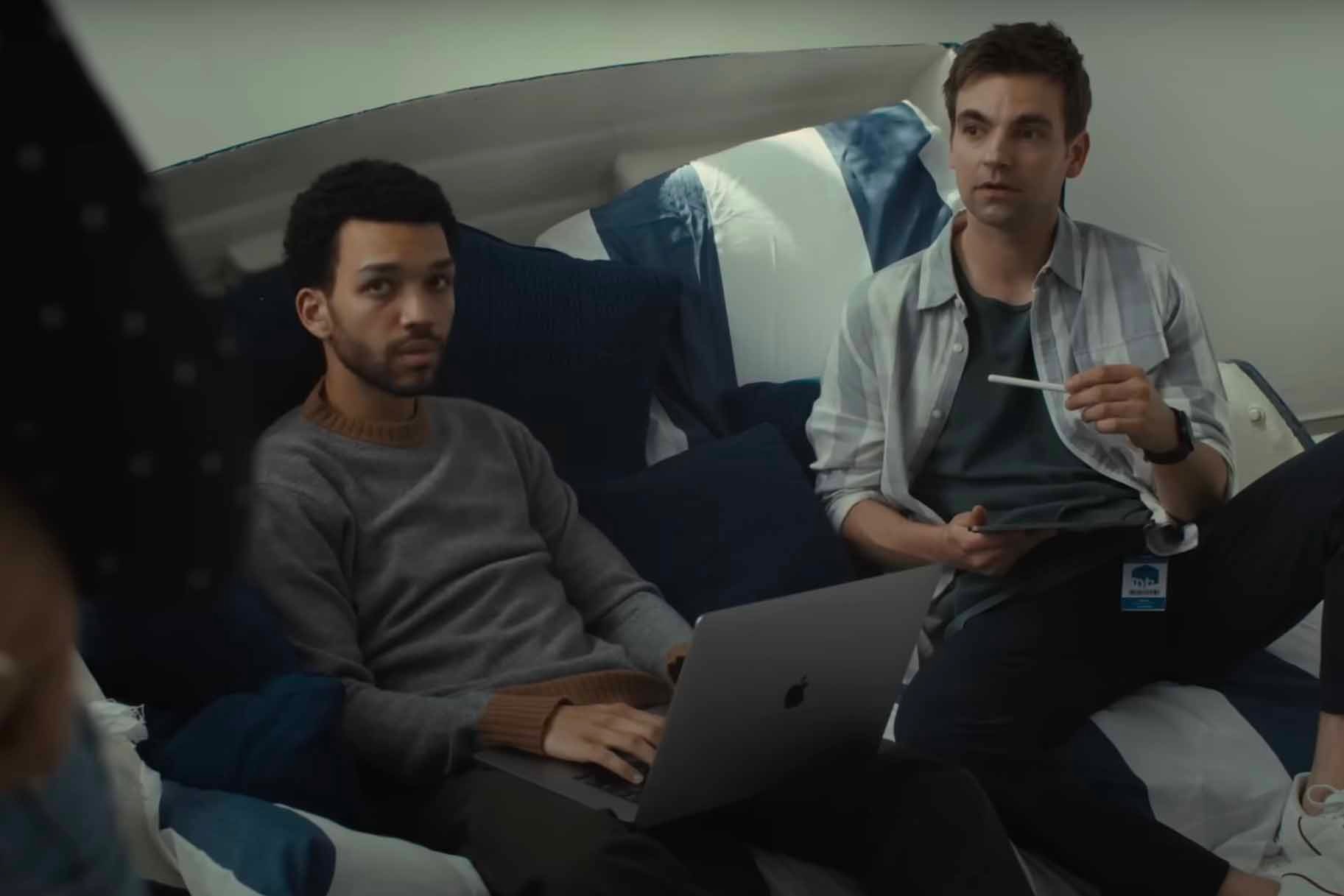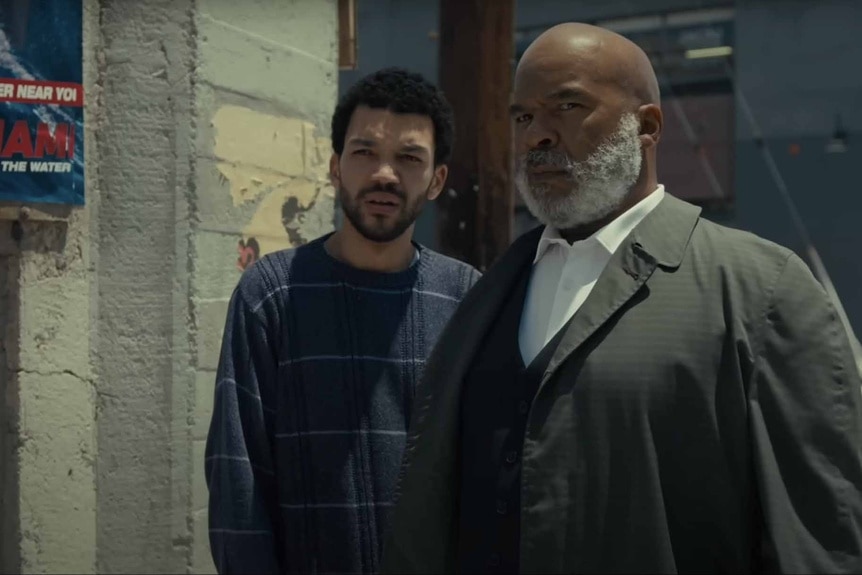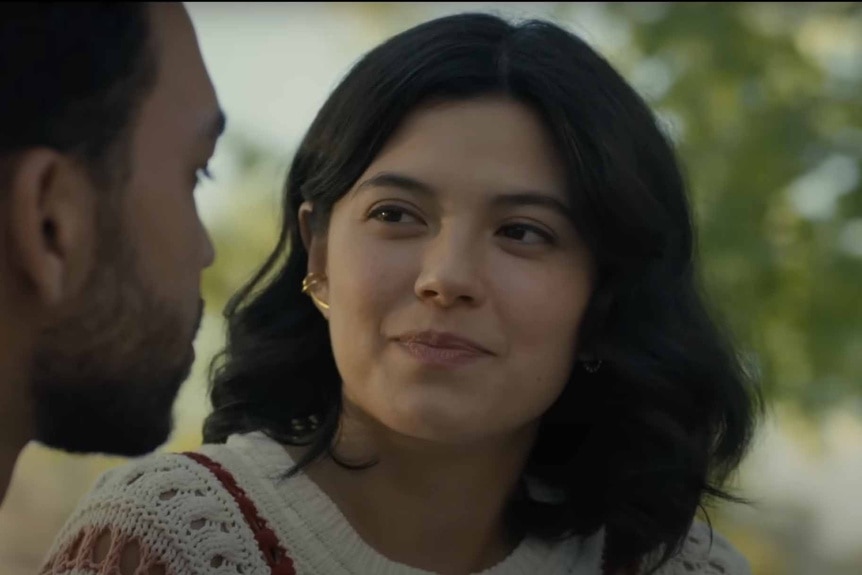Create a free profile to get unlimited access to exclusive videos, sweepstakes, and more!
The American Society of Magical Negroes Ending, Explained – Will There Be a Sequel?
Director Kobi Libii unpacks the magical realism, and more cheeky satire, woven into the ending of his directorial debut.

This story contains spoilers for The American Society of Magical Negroes.
As one of the most discussion-worthy theatrical releases of 2024, Focus Features' The American Society of Magical Negroes engages both satire and magical realism to express the complexities and sacrifices that Black people make daily to navigate the racial divides in the United States. It's the feature directorial debut of Kobi Libii, who workshopped the concept and screenplay at Sundance’s Screenwriters Lab and Directors Labs.
RELATED: Everything to Know About Grand Crew's Nicole Byer
Using humor to cut through the discomfort of the topic, Libii enlists the comedic talents of Justice Smith, David Alan Grier, Nicole Byer, An-Li Bogan, Michaela Watkins, and others to tell the story of Aren (Smith). He's a young artist in Los Angeles having a tough time articulating the purpose of his art and pretty much his life to anyone because he's gotten so good at pleasing others, especially white people. Because of this fear, he's unknowingly becoming an expert at modeling non-threatening behavior, which is a special skillset observed by Roger (David Alan Grier). Roger recruits Aren to enter the secret ranks of The American Society of Magical Negroes. It's their mission to diffuse the anger and frustrations of white people, which protects the larger Black populace from the selfish and capricious nature of Caucasians.
Sometimes a biting satire, sometimes a warm rom=com, and always a revealing look at the disparities between the white and Black experience across American history, The American Society of Magical Negroes is a conversation starter that will spark conversation long after the credits have rolled.
What happens at the end of the The American Society of Magical Negroes movie?
Aren feels worse and worse about what he has to sacrifice about his authentic self, and how small he has to be in order to execute the mission of the Society. It all comes to a head at the big MeetBox company-wide rebranding meeting led by Mick (Rupert Friend), the CEO. As the design team is about to present their new logo and concepts, Aren runs onto the stage and interrupts Jason's (Drew Tarver) stolen moment in the spotlight to confront him about how both he and the company have tokenized and marginalized him. His impassioned speech then blooms into a bigger monologue about his own self-worth as a Black man, a creative, and just a person trying to be seen in this world.
Aren essentially defies everything he's not supposed to do and say as a Society member. But he gets everything he's been suppressing and wrestling with off his chest. And in the process, impresses Lizzie and his Society mentor, Roger (David Alan Grier). Unfortunately, DeDe (Nicole Byer), the head of the Society, has to banish Aren because his big speech has "infected" others. Roger lets him go from his secret gig, but there's a newfound respect between them about all the ways there are to exist in this world. Will Aren's transformative moment of defiance and truth bring down the Society? That's for the audience to consider.
Is there a post-credits scene in The American Society of Magical Negroes?
No, but there is an epilogue right after Aren and Lizzie reunite. The pair get their Hollywood kiss and then walk down the street toward a perfect SoCal sunset.
What looks like the next day, Lizzie walks to a female-led business that appears to be a normal, local hair salon. But there's a special door in the back that Lizzie enters labeled "SOSWAG," which stands for the "Society of Supportive Wives and Girlfriends." Yes, the almost-too-good-to-be-true, smart, supportive Lizzie is in her own secret group meant to prop up partners who self-sabotage or can't get out of their own way in life.
Is it just a sly joke about how women also have to twist and bend to accommodate what society tells them being a "good partner" is, and how past relationships dictate the path of least resistance for many women, or is it tipping up a future sequel? Director Kobi Libii told NBC Insider that the former is the case.
"I completely get the suggestion that it's about a whole other world, or a whole other story to be told. But as much as anything, what I love about that tag is the way it challenges audiences to look back at the film that they just saw and question the protagonism of it, right?" Libii explained. "It felt almost unethical to tell this story about these side characters who weren't necessarily the focus, and then have this non black, woman of color — who is to a certain extent a side character — and not have a little bit of a tag that says maybe have a think about her at the center of the story? Have a little think about that for the road.
"To me, that little sort of rack focus, I think of it as being so in keeping with the reclamation project of the movie," he continued. "As much as it suggests future worlds, I'm primarily interested in the way it sort of reframes and makes you think back about what you just saw."
The American Society of Magical Negroes is exclusively in theaters now. Buy tickets here.




























